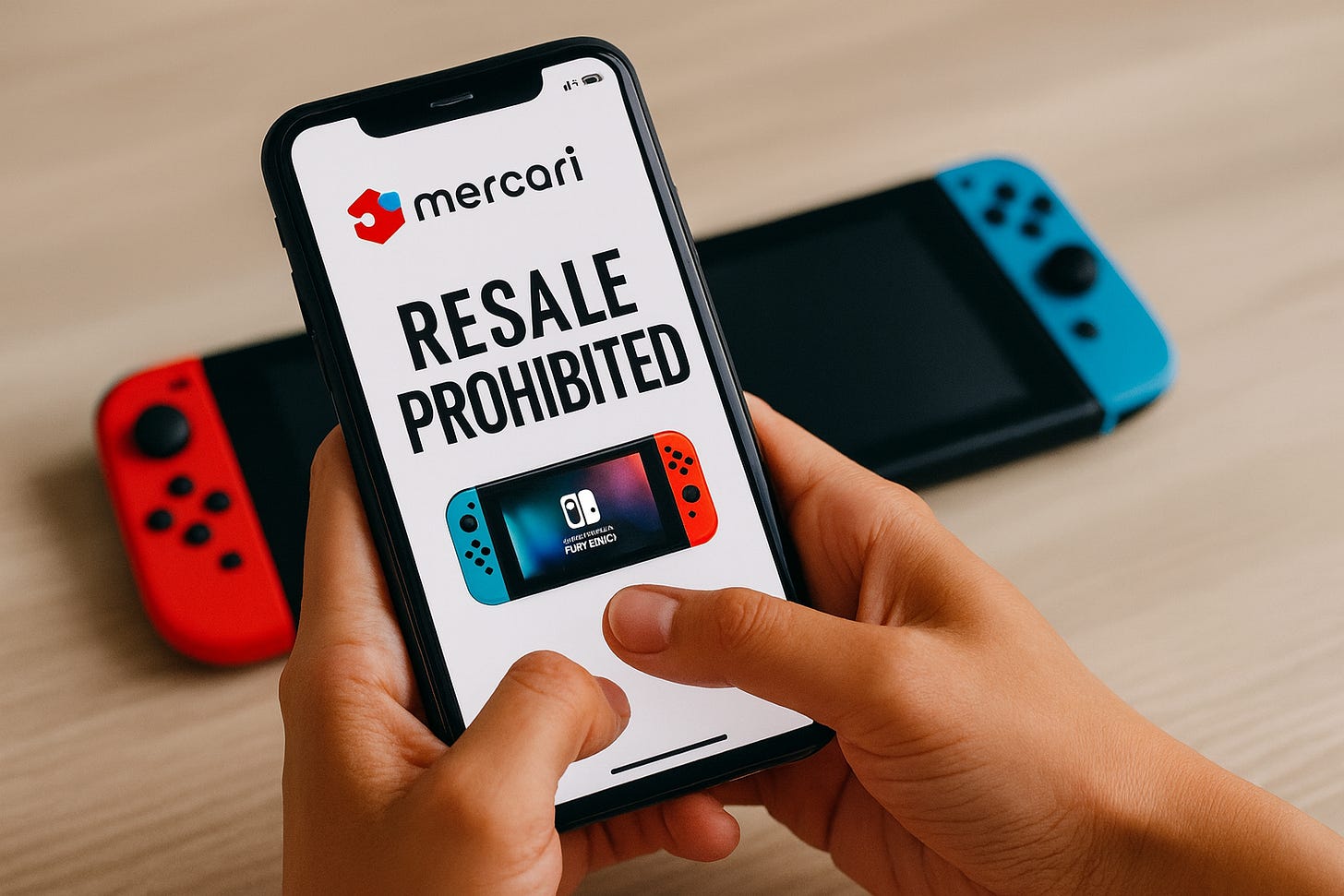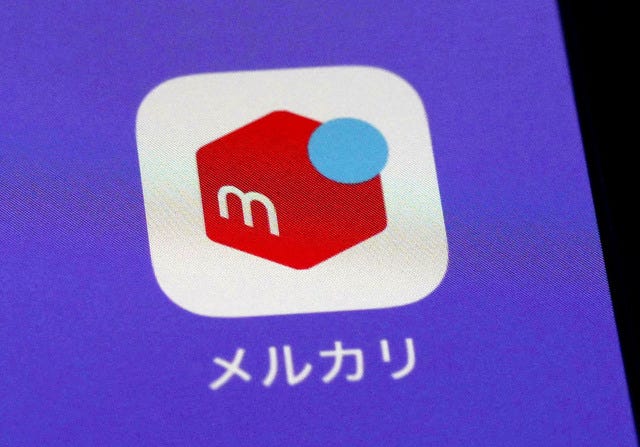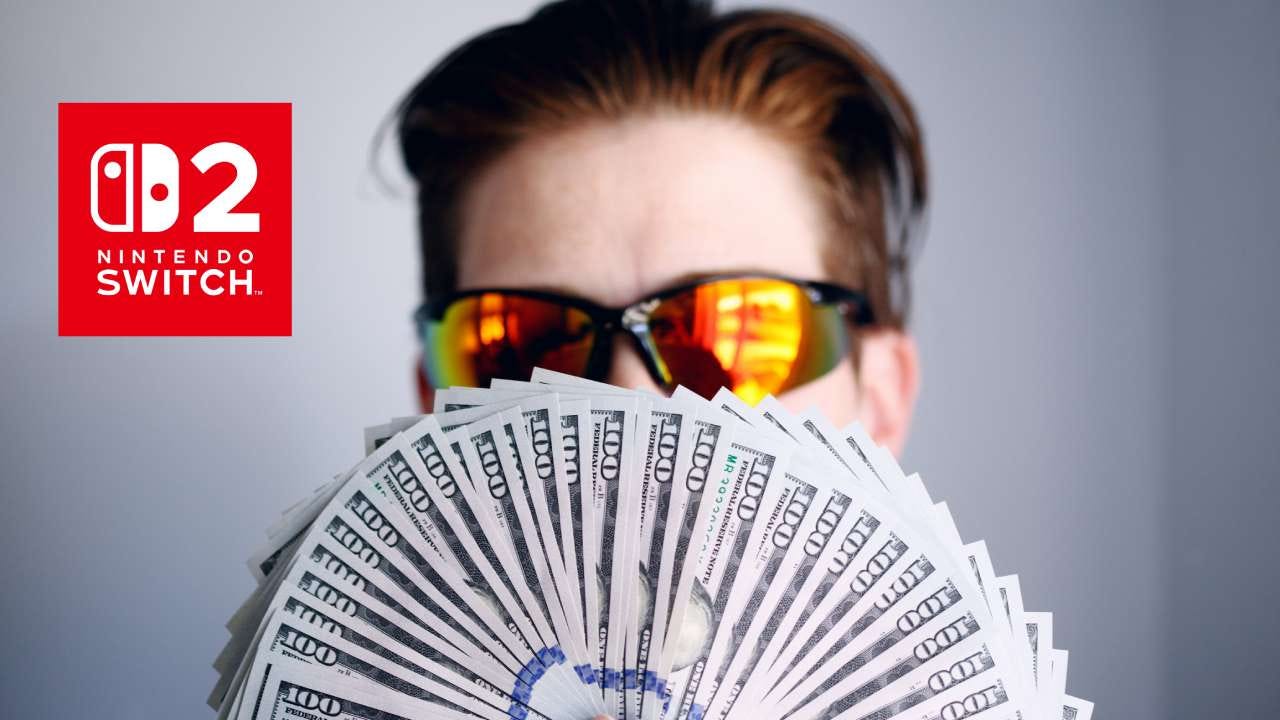After Switch 2 Listing Scandal, Japan’s Mercari Sets New Marketplace Ban Policy
Japanese pop culture news edited by Patrick Macias
A flood of fake and overpriced Switch 2 listings forces Mercari to rethink its marketplace rules
New policy allows bans on listings that threaten safety, trust, or platform stability
Company promises transparency through public reports and case-by-case reviews
Mercari Changes Policy to Protect Marketplace Safety
Japan’s resale app Mercari announced on October 9 a new policy prohibiting listings that cause extreme price fluctuations, fraudulent sales, or user disputes. The revision follows the release of the Nintendo Switch 2, which saw a spike in deceptive listings and harassment on the platform. Under the new rules, Mercari can ban listings for products that compromise marketplace safety, even if they are not illegal.
The company said the decision marks a shift from its earlier stance, which prioritized open trade as long as transactions were legal. Other resale and auction sites banned Switch 2 listings immediately after launch to prevent trouble, leaving Mercari as one of the few platforms where the console could still be sold.
Unsafe Listings Sparked User Concerns
While product resales are not illegal, Mercari’s marketplace was flooded with “box-only” listings, misleading photos, and counterfeit offers for the new Switch 2 console. Although such posts were deleted, the company admitted that user safety had been undermined. Moving forward, Mercari will consider product bans when fraudulent listings, harassment, or drastic price swings occur, evaluating each case comprehensively.
This special measure will operate outside the existing “Basic Principles of the Marketplace,” with executive management making final decisions on listing bans.
Balancing Free Trade and Safety
Masato Yamamoto, Senior Vice President and Head of Mercari Japan Business, explained that the company’s principles were established around 2020 to ensure safety, trust, and ethical operation during issues such as mask resales amid the pandemic. The goal was to balance freedom of trade with public safety and user confidence.
However, Yamamoto noted that “externalities” sometimes disrupt market mechanisms. When trades affect third parties or public welfare, Mercari intervenes. Past examples include bans on masks, emergency rice, and even spent cartridge cases, all of which posed safety or security concerns.
Switch 2 Revealed Policy Gaps
In the case of the Nintendo Switch 2, Mercari issued warnings at Nintendo’s request but allowed listings to continue since they did not violate marketplace principles. However, the surge in fake listings and hostile comments led to an erosion of user trust. Advisory board discussions in July and September ultimately prompted the new exception rule allowing targeted bans when “safety and security are compromised.”
Economics professor Toyotaka Sakai of Keio University, one of the board’s external experts, said bans should be based on objective harm rather than social discomfort. “The Switch 2 resale was not a health or safety issue like masks during the pandemic,” he said. “But fraudulent listings and price manipulation damaged trust in the platform. From that standpoint, a ban was justified.”
Transparent and Restrained Enforcement
Shunsuke Sako, Mercari’s Executive Officer and CEO of Marketplace Operations, admitted that “the Switch 2 should have been suspended immediately after launch.” While the console is still not banned at present, Mercari will monitor listing behavior and consider restrictions if safety concerns arise.
Key criteria include increases in fraudulent listings, disputes, harassment, or severe price instability. To prevent overreach, the company will apply the rule cautiously and publish “white papers” detailing major decisions to ensure transparency. Regular disclosures will help maintain accountability and reinforce Mercari’s goal of being a trusted marketplace for Japan’s growing resale economy.







